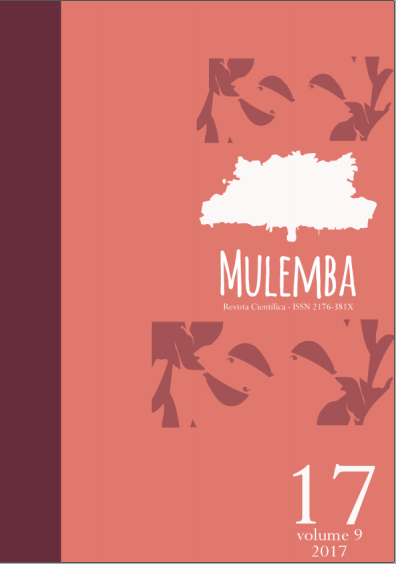Os Cantos de Maldoror”: Cinema de Liberación de la “Realizadora-Romancista”
DOI:
https://doi.org/10.35520/mulemba.2017.v9n17a14579Palabras clave:
Cine Político, Sarah Maldoror, Luandino Vieira, Cine Africano, Luchas De Liberación.Resumen
En el contexto de la producción internacional de un cine político, engagé, Sarah Maldoror creó y mantuvo -- desde Monangambé a Sambizanga, sobre la lucha anticolonial en Angola, pasando por Des fusiles hacia Banta, flmado entre los guerrilleros de Guinea-Bissau -- una práctica singular. Compuso un cine político, servido por una mirada estéticamente cuidada, y en que, a través de elementos fcticios -- y no a través de las opciones documentales y del recurso al cine directo entonces característicos del cine militante--, la acción no es tan central como la composición psicológica de los personajes. A pesar de la calidad estética de sus películas y la densidad psicológica de sus personajes, críticas e intentos de controlar sus opciones creativas marcaron fuertemente el inicio de la obra cinematográfca de aquella que es considerada la primera realizadora africana pero que sigue sin tener el mismo reconocimiento que sus pares masculinos.Descargas
Descargas
Publicado
Número
Sección
Licencia
Los autores que publican en esta revista concuerdan con los siguientes términos:
- Los autores mantienen los derechos autorales y conceden a la revista el derecho de primera publicación, con el trabajo simultáneamente licenciado bajo la Licencia Creative Commons Attribution que permite compartir el trabajo con reconocimiento de la autoría y publicación inicial en esta revista.
- Los autores tienen autorización para asumir contratos adicionales separadamente, para distribución no exclusiva de la versión del trabajo publicada en esta revista (ej.: publicar en repositorio institucional o como capítulo de libro), con reconocimiento de autoría y publicación inicial en esta revista.
- Los autores tienen permiso y son estimulados a publicar y distribuir su trabajo online (ej.: en repositorios institucionales o en su página personal) en cualquier momento antes o durante el proceso editorial, ya que eso puede generar alteraciones productivas, así como aumentar el impacto y la citación del trabajo publicado (Vea El Efecto del Acceso Libre).

